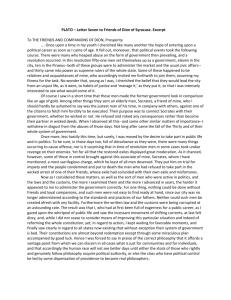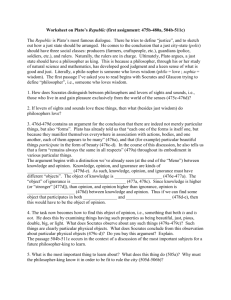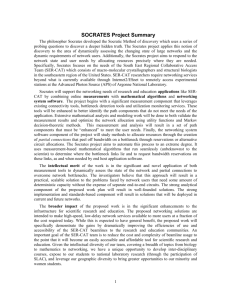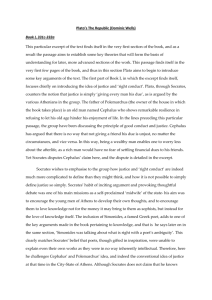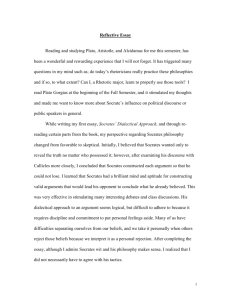The Trial of Socrates - Proving His Innocence
advertisement
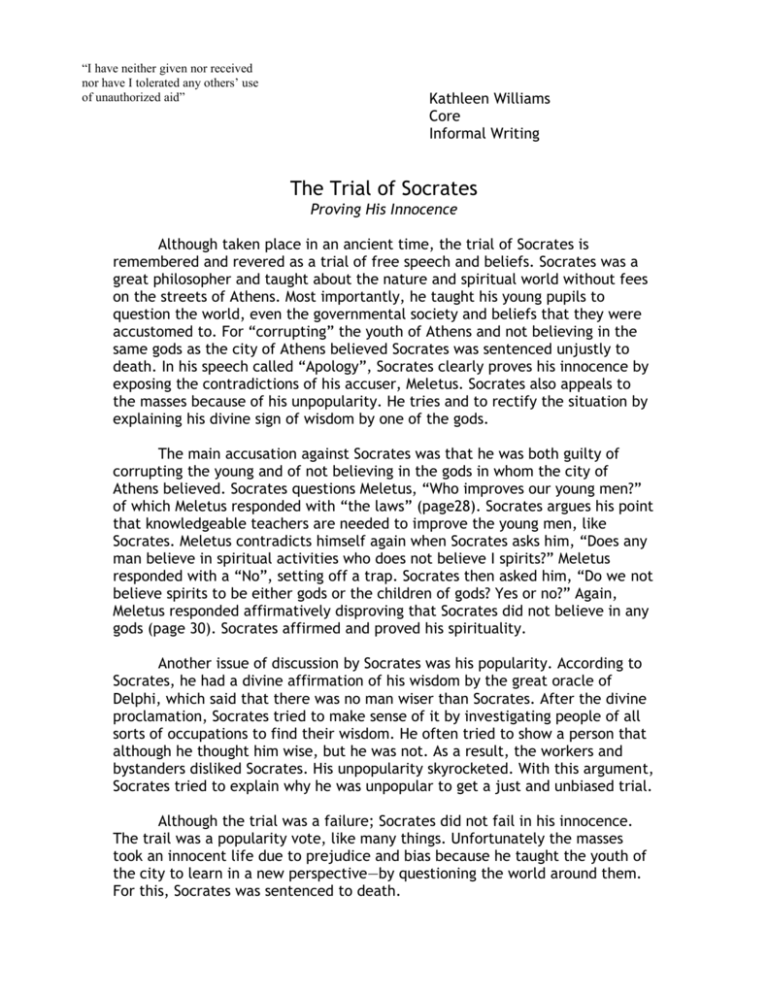
“I have neither given nor received nor have I tolerated any others’ use of unauthorized aid” Kathleen Williams Core Informal Writing The Trial of Socrates Proving His Innocence Although taken place in an ancient time, the trial of Socrates is remembered and revered as a trial of free speech and beliefs. Socrates was a great philosopher and taught about the nature and spiritual world without fees on the streets of Athens. Most importantly, he taught his young pupils to question the world, even the governmental society and beliefs that they were accustomed to. For “corrupting” the youth of Athens and not believing in the same gods as the city of Athens believed Socrates was sentenced unjustly to death. In his speech called “Apology”, Socrates clearly proves his innocence by exposing the contradictions of his accuser, Meletus. Socrates also appeals to the masses because of his unpopularity. He tries and to rectify the situation by explaining his divine sign of wisdom by one of the gods. The main accusation against Socrates was that he was both guilty of corrupting the young and of not believing in the gods in whom the city of Athens believed. Socrates questions Meletus, “Who improves our young men?” of which Meletus responded with “the laws” (page28). Socrates argues his point that knowledgeable teachers are needed to improve the young men, like Socrates. Meletus contradicts himself again when Socrates asks him, “Does any man believe in spiritual activities who does not believe I spirits?” Meletus responded with a “No”, setting off a trap. Socrates then asked him, “Do we not believe spirits to be either gods or the children of gods? Yes or no?” Again, Meletus responded affirmatively disproving that Socrates did not believe in any gods (page 30). Socrates affirmed and proved his spirituality. Another issue of discussion by Socrates was his popularity. According to Socrates, he had a divine affirmation of his wisdom by the great oracle of Delphi, which said that there was no man wiser than Socrates. After the divine proclamation, Socrates tried to make sense of it by investigating people of all sorts of occupations to find their wisdom. He often tried to show a person that although he thought him wise, but he was not. As a result, the workers and bystanders disliked Socrates. His unpopularity skyrocketed. With this argument, Socrates tried to explain why he was unpopular to get a just and unbiased trial. Although the trial was a failure; Socrates did not fail in his innocence. The trail was a popularity vote, like many things. Unfortunately the masses took an innocent life due to prejudice and bias because he taught the youth of the city to learn in a new perspective—by questioning the world around them. For this, Socrates was sentenced to death.



